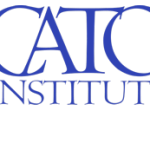Brad Wilcox
“[M]arriage represents the keystone institution for most—though not all—societies and may be the most primeval of human institutions,” observed the Harvard anthropologist Joseph Henrich. Certainly, this has been and is true for the United States.
But the role and value of our “keystone” institution has come into question in recent decades. Critics on the Left have long argued that if marriage holds any benefits, they are all on the man’s side. This was the view of the feminist sociologist Jesse Bernard, who wrote in her 1972 book, The Future of Marriage, “[M]arriage introduced such profound discontinuities into the lives of women as to constitute genuine emotional health hazards” for them.REF
More recently, as it has become clear that married women are better off emotionally, financially, and physically than unmarried women,REF many progressives have pivoted to a new argument: Marriage is correlated with but does not cause better outcomes for women and men. Psychologist Bella DePaulo aims to advance this view, stating that for “nearly [two] decades, I have been arguing that research does not support the pervasive claims that getting married makes people happier or healthier.”REF She continues,“[S]everal important studies and review papers have been published that make it clearer than it has ever been before that we have been misled about the supposed benefits of getting married.”REF In her estimation, any apparent benefits of marriage are illusory, deriving from other advantages that married Americans are more likely to have today—like greater education and income.
Up until recently, the critics of marriage have generally hailed from the Left. But that has changed in recent years, as online influencers such as Pearl Davis and Andrew Tate have articulated messages deeply critical of the institution. Tate, a former kickboxer and one of the biggest voices in the “manosphere,” argues that the “problem is, » Read More
https://www.heritage.org/marriage-and-family/report/marriage-americas-keystone-institution






